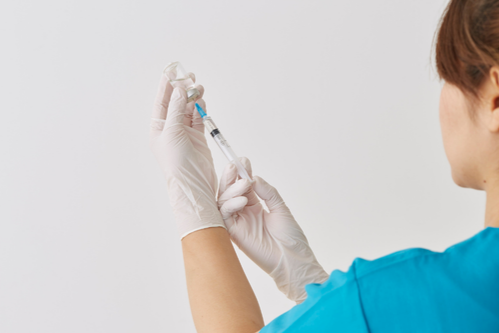
Vaccination is essential and important. We've all heard this, but when it comes to vaccinating children, there are still parents who have doubts and don't understand 100% the importance of this act.
Portuguese Pharmacies explain.
A vaccine is a preparation of important components (antigens) of the microorganisms (viruses or bacteria) that cause certain diseases, which, when administered, triggers a specific immune system response against those same microorganisms. They have a preventive function, not causing disease, but also not curing it, but preventing its development or attenuating the disease if it does occur.
They are administered to healthy individuals, and vaccination schemes usually start as early as childhood, so that immune protection occurs as early as possible. Even in situations where this protection (immunity) is not total, those who are vaccinated have a greater capacity for resistance to the respective diseases and milder symptoms if they develop them.
Compliance with the National Vaccination Program (PNV) aims to protect against diseases that can, in some cases, have serious complications and cause death. This is the case with measles, diphtheria, polio and whooping cough. If these diseases are not familiar to you, it's because vaccination is doing its job. This is because high vaccination coverage brings not only personal but also collective benefits, preventing some diseases from spreading in the community and promoting their eradication (disappearance of the disease in a given region).
The World Health Organization (WHO) has been calling for vaccination with solid, unquestionable arguments that cannot be recalled enough:
Every unvaccinated individual runs the risk of falling ill and increases the risk of transmitting the disease.
Vaccination is an act of protection, a right, but also a duty, fundamental for the child and for society as a whole.
Don't forget to comply with the PNV, thus giving your children the foundations for a healthier future.Do you have any questions or doubts? Ask your pharmacist, however simple the questions may seem. Help us to dispel existing myths and find out more about the importance of vaccination.
Find out more about what to expect when vaccinating babies.
copyright © by the National Association of Pharmacies
________
WITH SHEE'S HELP
Find a multidisciplinary team of health professionals, always with friendly advice, to provide you with safe, close and personalized care.
Register now 👉 here.
Make an appointment with your pharmacist 👉 here.
Discover all the products, at the best prices, all year round, in the online store 🛒.
Life is easier when you're healthy.